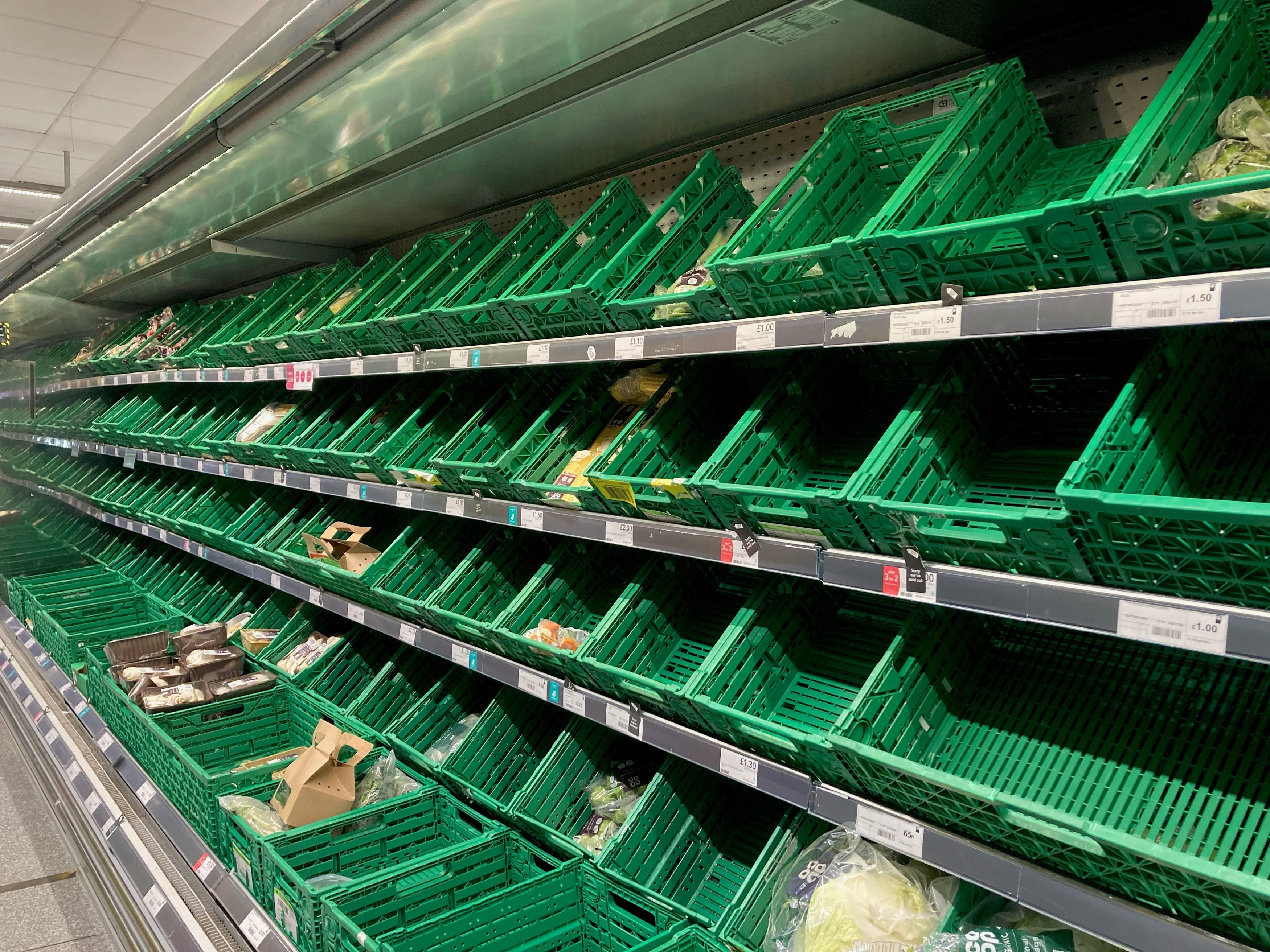In the supermarket and on the farm, hungrier times lie ahead
Editorial: A combination of factors, including Brexit, have conspired to create a situation where many foodstuffs haven’t been so expensive in years, and yet some farms are still struggling to survive

According to the National Farmers’ Union (NFU), Britain is “sleepwalking” into a food supply crisis. The only thing wrong with that view is the implication that what has been happening to food prices has somehow passed the population by.
Obviously, it has not. The British consumer is well aware of how increasing costs have affected the prices of essentials – whether fresh food or processed. It is, though, only fair to concede that the struggles of British farms and farmers have been less prominent.
As with households and other businesses affected by the energy crisis, farmers do need help, as a matter of equity as well as to contribute to food security and upkeep of the countryside. Such is the uncertain nature of the farm income support regime post-Brexit and after the Common Agricultural Policy, that the possibility of a full agricultural depression in the coming years cannot be ruled out. Even at a time of high prices for many products, pressure on costs can easily outweigh that windfall.
Brexit was never as universally popular in rural areas as many assumed, and its continuing baleful influence is being felt even as the immediate challenges of avian flu, energy costs and the price of fuel and fertiliser have forced many farms to cut back or close. The NFU said some 7,000 agricultural businesses may have been lost since 2019; capital-intensive activities such as milk production and growing fruit have been hit especially hard. Profit margins are thin to non-existent.
The outlook for consumers and farmers is not encouraging. The rate of inflation should slow next year, but mainly because of an index effect – gas and electricity prices are not expected to double again, for example.
To keep up to speed with all the latest opinions and comment, sign up to our free weekly Voices Dispatches newsletter by clicking here
Yet energy and food bills will increase and unless there is a sudden end to the war in Ukraine, they will stay high. The effects of a relatively weak exchange rate, tax increases and interest rate hikes will help tip the economy into recession, or rather a spate of “stagflation”, where inflation subsides only slowly, and pay rises fail to keep up.
The Bank of England believes inflation will fall sharply over the next two years. If so, it will be at considerable cost to jobs and businesses, not least those in the countryside. Even in such circumstances as those, farms will still be faced with a lack of seasonal and casual labour to gather crops, inextricably linked to Brexit.
The weakness of the pound has made imported food more expensive, but much of it cannot be sensibly grown in the UK. Meanwhile, British producers cannot take full advantage of the cheaper pound to export to the EU single market.
Somehow, a combination of factors, including Brexit, have conspired to create a situation where many foodstuffs haven’t been so expensive in years, and yet some farms are still struggling to survive. In the supermarket and down on the farm, it feels very much as though even tougher and hungrier times lie ahead.



Join our commenting forum
Join thought-provoking conversations, follow other Independent readers and see their replies
Comments